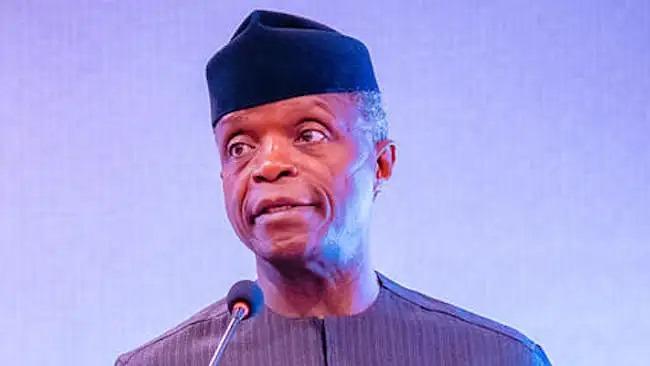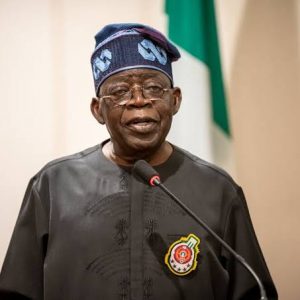He made the call at the Ford Foundation Office for West Africa (FFOWA) high-level anniversary celebration in Abuja, themed FFOWA@65: From Nation Building to Social Justice.
Speaking on the topic Social Justice as an Imperative to Development, Osinbajo said true progress should not be measured by Gross Domestic Product (GDP) alone but by the quality of life and well-being of citizens. He noted that although Africa is currently the fastest-growing continent in GDP terms, it remains the one with the lowest overall quality of life, adding that GDP growth does not necessarily translate to jobs or decent living conditions.
Reflecting on his tenure as Chair of Nigeria’s Economic Management Team from 2016 to 2019, Osinbajo highlighted the gap between economic statistics and citizens’ lived experiences. He observed that when governments talk about growth, many citizens fail to see the impact, as the benefits often accrue only to big businesses, banks, and corporates, leaving ordinary people behind. For many, he said, the promise of a better life that democracy offers remains unfulfilled.

He emphasized that development must start from the bottom up, not from the top down. According to him, development should always be tied to the welfare of the majority, as social justice places human beings—not statistics—at the centre of progress. He maintained that social justice ensures that development reaches everyone, not just a privileged few.
Osinbajo stressed that genuine development must prioritize the welfare of the majority, ensuring fair access to opportunities, protection of rights, and resources for a dignified life. He pointed out that inclusion and equality are the true drivers of sustainable growth and have transformed economies across the world.
Speaking on climate justice as an aspect of social justice, he warned that climate change represents a major economic threat to Africa, with Nigeria ranked among the 10 most climate-vulnerable countries globally. He projected that by 2050, Nigeria could face up to 9.4 million internal climate migrants, mostly poor rural farmers displaced by floods or desertification. He reminded the audience that Africa did not cause the climate crisis, as the global north bears the primary responsibility, making climate justice a central social justice issue.
He called on global corporations responsible for decades of carbon-intensive activities to fund adaptation and loss-and-damage initiatives in vulnerable countries. Osinbajo also urged that communities affected by environmental degradation, such as those in the Niger Delta, be empowered to negotiate fairly with both the government and resource-extracting companies.
Linking good governance and anti-corruption to economic growth, Osinbajo recalled his role in co-founding Integrity, an anti-corruption organization funded by FFOWA in 1994. He noted that corruption is not just a public sector problem but a development issue that, if left unchecked, could cost Nigeria 37 percent of its GDP by 2030, citing a PricewaterhouseCoopers report.
He added that even small-scale corruption within the private sector can stifle entrepreneurship and job creation. He described anti-corruption efforts as social justice programs that protect public resources, strengthen businesses, and create jobs. According to him, building systems of fairness and accountability in government and the marketplace unleashes economic growth and gives citizens a fair chance at a better future.
Osinbajo reaffirmed that Africa’s greatest wealth lies in its people. He said that when every policy, budget, and reform addresses the needs of the majority, the foundation for genuine progress is established. He described social justice not as charity but as the bedrock of sustainable development.
He congratulated the Ford Foundation Office for West Africa on its 65th anniversary and commended its enduring commitment to advancing social justice and strengthening democracy across the region.
The Minister of Budget and National Planning, Senator Abubakar Bagudu, also commended the Ford Foundation for its long-standing partnership, describing the anniversary as timely for strengthening collaboration on inclusive development. He explained that the current administration has stabilized macroeconomic fundamentals and is now focused on translating that stability into local prosperity through a data-driven strategy.
Bagudu said the government has mapped out unique opportunities across the country’s 8,809 wards to identify ways of generating prosperity inclusively, adding that the administration is confident about revenue growth and economic expansion.
In her remarks, the Regional Director of FFOWA, Dr. ChiChi Aniagolu-Okoye, noted that the foundation began operations in Lagos in 1960 and has since supported initiatives in education, human rights, women’s empowerment, cultural expression, economic inclusion, and environmental justice. She said the foundation’s legacy is not defined merely by the half a billion dollars granted to 1,098 partners, but by the spirit and vision that underpinned each collaboration. According to her, the 65-year journey has been one of continuous learning, built on the understanding that change takes time and courage. She emphasized that progress is not imported but imagined, shaped, and owned by West Africans themselves, adding that social justice is not a luxury but the foundation of thriving and inclusive societies.
The Senior Vice President of the Ford Foundation, Martín Abregu, highlighted that while the organization began in the United States over eight decades ago, its mission has evolved into a global pursuit of social justice and reduced inequality. He explained that the foundation has transformed from an American philanthropic body into a global institution grounded in local realities, working through listening, partnership, and shared learning rather than prescription.
Abregu described the Ford Foundation as a bridge connecting local experiences to global debates on climate change, gender justice, and digital rights. He praised West Africa as a source of inspiration for the foundation, citing the creativity of its youth and the resilience of its civil society
Stay ahead with the latest updates!
Join The Podium Media on WhatsApp for real-time news alerts, breaking stories, and exclusive content delivered straight to your phone. Don’t miss a headline — subscribe now!
Chat with Us on WhatsApp






